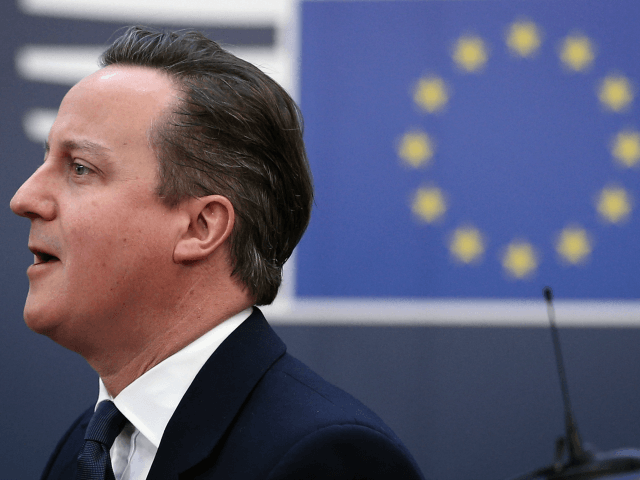David Cameron’s benefits deal with the European Union (EU) is unlikely to cut immigration and will only affect 10 to 20 per cent of newly arrived EU migrants, a report has said.
Migration Observatory says that as few as one in 10 new arrivals from the bloc actually claim handouts as soon as entering the UK, meaning they were mostly lured over by jobs.
This means they will be unaffected by David Cameron’s deal to restrict the payment of in-work benefits such as tax credits for the first four years after they arrive in the UK.
The Prime Minister had promised that his deal would lead to a reduction in the number of EU migrants coming to Britain as they would lose one of their main incentives, but the new study suggests few will be put off by this.
The Times reports that government figures said last year that up to 45 per cent of EU migrants who had arrived in the past four years had claimed benefits. However, Migration Observatory says that only 62,000 to 111,000 of the nearly 600,000 recently arrived EU migrants were receiving tax credits in the first quarter of 2014.
Madeleine Sumption, the group’s director, said: “A large majority of recent EU migrants are not claiming benefits of any kind. That means that most migrants to the UK would not be affected by proposed changes to the welfare system.”
The report added: “The number of people whose initial migration decision might be affected by the immediate availability of tax credits is likely to be a small share of the total, suggesting the proposed benefits restriction is unlikely to lead to a dramatic reduction in EU immigration to the UK.
“Among those who do receive benefits, it is not known whether the availability of benefits was an important factor. Some people would presumably have moved to Britain for the higher wages or better job opportunities even if these benefits had not been available.”
There is increasingly evidence that high levels of EU immigration could swing the upcoming referendum towards Brexit.
A recent poll by Opinium found that up to half of British voters, and three quarters of those who want to leave, identified immigration as the single most important factor in deciding how to vote.
Net migration into the UK reached 336,000 last year.

COMMENTS
Please let us know if you're having issues with commenting.